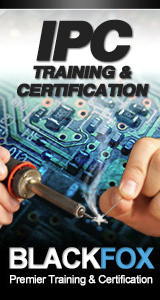Two of Indium Corporation’s experts will present in the virtual International Conference for Electronics Hardware Enabling Technologies(ICEHET) virtual conference, hosted by SMTA Toronto, June 2-3.
The increased use of high-temperature lead-free solders to replace high-lead solders has been driven by the harmful effects of lead to human health and impacts on the environment. Another driving force is the rising demand for bonding materials used under high-power densities and high junction temperatures, especially for wide-band-gap power devices. In A Novel Design of High-Temperature Lead-Free Solders for Capacitor Lead Bonding and Die-Attachment, Dr. HongWen Zhang, R&D manager, alloy group, will examine the benefits of one product—Durafuse™ HT—designed from Indium Corporation’s novelsolder alloy technology, over traditional high-lead solders in capacitor lead bonding and die-attach applications.
Low-temperature solders with peak reflow temperatures of 200°C and below have been extensively studied, with a leading Bi-containing candidate offering a peak reflow range as low as 165-170°C. The brittleness found in Bi-containing solders, however, delivers poor drop shock performance and compromised reliability. In An Alternative Lead-Free, Low-Temperature Solder with Excellent Drop Shock Resistance, Dr. Jie Geng, research metallurgist, will examine the benefits of Indium Corporation’s Durafuse™ LT, an innovative low-temperature alloy technology that offers enhanced reliability with drop shock performance two magnitudes better than Bi-containing solders.
Dr. Zhang is manager of the Alloy Group in Indium Corporation’s Research & Development Department. His focus is on the development of lead-free solder materials and the associated technologies for high-temperature and high-reliability applications. He and Dr. Ning-Cheng Lee invented the novel solder alloy technique that combines the merits of constituents to improve wetting, reduce processing temperatures, modify the bonding interface, and control the joint’s morphology, thus improving the reliability. On the basis of this technique, the Durafuse™ LT, BiAgX®, and Durafuse™ HT soldershavebeen commercialized to meet the market need and numerous application patents have been filed and granted. He has published more than 40 papers and journal articles, and co-authored two book chapters. Dr. Zhang received his Ph.D. in material science and engineering, as well as a master’s degree in mechanical engineering at Michigan Technological University. He holds a Lean Six Sigma Green Belt, is a certified IPC specialist for A-600 and IPC-A-610D, and is a Certified SMT Process Engineer.
Dr. Geng is a research metallurgist in the Research & Development Department at Indium Corporation. In his role, he focuses on the development of novel lead-free high-reliability solder alloys for automotive applications. He also investigates the assembly process technologies in electronic packaging and interconnections. He received his Ph.D. in metallurgy at the University of Surrey, Guildford, U.K. He has extensive experience on materials selection, design, processing, and characterization. Dr. Geng is skilled in combinatorial and high-throughput material design using 3D printing and computer programming with Python. He has published more than 30 journal articles. He is also a Certified SMT Process Engineer.
Indium Corporation is a premier materials refiner, smelter, manufacturer, and supplier to the global electronics, semiconductor, thin-film, and thermal management markets. Products include solders and fluxes; brazes; thermal interface materials; sputtering targets; indium, gallium, germanium, and tin metals and inorganic compounds; and NanoFoil®. Founded in 1934, the company has global technical support and factories located in China, Germany, India, Malaysia, Singapore, South Korea, the United Kingdom, and the U.S.
For more information about Indium Corporation, visit www.indium.com or email jhuang@indium.com. You can also follow our experts, From One Engineer To Another® (#FOETA), at www.linkedin.com/company/indium-corporation/ or @IndiumCorp.
The event features presentations on current topics and challenges involving electronics materials, components, assembly, and reliability of the products that have become essential in many aspects of modern life.
Electronics products are becoming ubiquitous in many aspects of modern life, including smart devices, Internet of Everything, wearables, and self-driving vehicles, as well as the more established (but still growing areas) of communications, entertainment, medical devices, lighting, automotive, avionics, and computing. The growth is largely driven by the continued increase in density of integrated circuits, the applications that utilize the greater functionality, and by steadily decreasing power consumption and cost.








